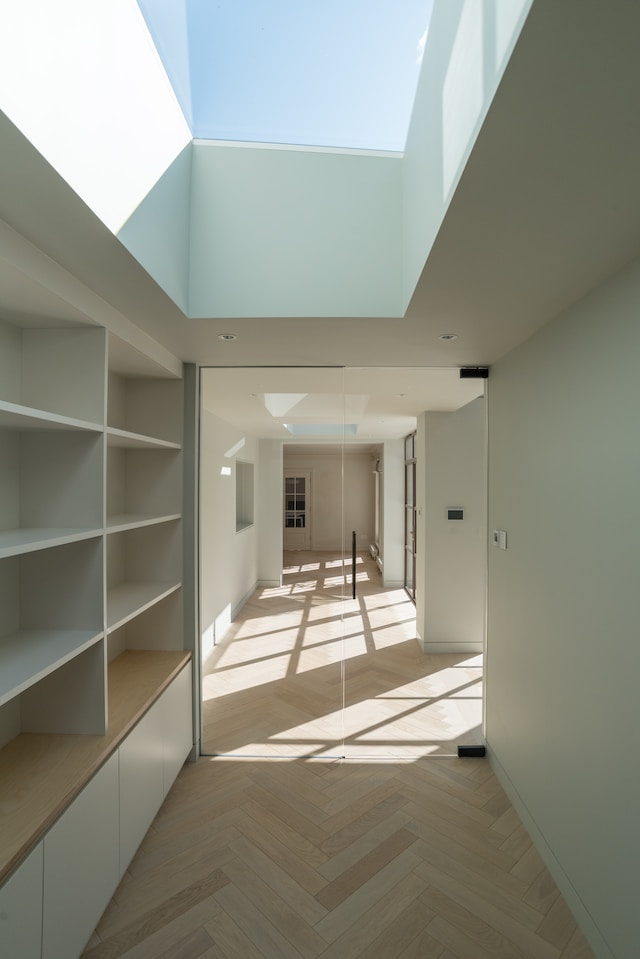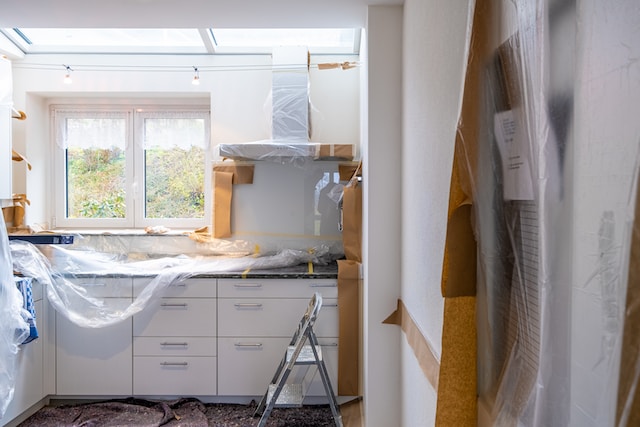When you need a permit for your renovation or custom home in Maryland
Renovating or building a custom home can be an incredibly exciting project. But before you start, it’s important to know what permitting regulations and rules apply in your area—otherwise, you could end up facing costly fines and setbacks. So when do you need a permit? Understanding what qualifies as a permitted activity helps avoid delays during your renovation or build process so that turning your vision into reality goes smoother than expected. Keep reading to find out more about how permits affect projects around Maryland! (and possibly your home)
Introducing – What are permits and why do you need them for your renovations or custom home
When undertaking renovations or building a custom home, permits are an essential part of the process. Permits are documents that authorized individuals or government agencies give you to proceed with your project. A permit allows you to carry out your construction, renovation, addition, demolition, or other related activities legally. The purpose of permits is to ensure the safety and integrity of all structures following local regulations and conventions. Permits help maintain these standards for both private and public buildings, such as apartments and schools. Without the proper permits for your projects, you can face complications from legal authorities that could easily be avoided by properly obtaining them beforehand.
The types of permits required in Maryland, when they are necessary and when they are not
When starting a project or taking on a task, it’s important to look into what permits may be necessary. Depending on the task, different types of permits may be required – these include building permits, health permits, and business operation licenses, among others. It is essential to properly research and understand when each permit is necessary and when they are not to avoid any penalties. In general, if your project involves an alteration or construction of any kind, you will likely need some type of permit, as well if you plan on operating a business in many places. To start your project off right, make sure to do some due diligence before moving forward with the task at hand.
How to apply for the right permit
When considering what permit you need for your project or activity in your local area, it is important to research and understand all the restrictions and regulations involved in obtaining the right permit. First, contact the appropriate government agency in your local area to find out which permits are required. Ask specific questions about documents being needed and any inspections that may be involved. Once you are prepared with all of the necessary steps, you can apply for a permit online or by mail. Generally, this process involves paying an application fee, so make sure to factor that into your plans as well. Taking each step with care will ensure that you get the correct permit for what it is you wish to accomplish.
Exemptions to consider, such as if the property is older than 50 years and/or you’re doing minor improvements
Although it may appear that almost all home improvement will require the owner to obtain a building permit to move forward, there are some exemptions worth considering. For example, if the property is older than 50 years, or if the improvements being made are minor (such as changing out fixtures or devices), then these projects may not require a permit after all. In some cases, even substantial changes and additions can be exempt from a permit if the modifications do not affect the structural integrity of the building – so it pays to know both the rules and any potential exceptions before beginning work on your project.
 Understanding regulations for safety codes and building codes in areas prone to earthquakes or extreme weather conditions
Understanding regulations for safety codes and building codes in areas prone to earthquakes or extreme weather conditions
Building codes and safety codes in areas prone to earthquakes and other severe weather conditions are essential for the safety of its citizens. They regulate the strength of materials used, how they are connected, and more. When all regulations are followed properly, it helps greatly reduce the risk of structural failure due to major disasters, such as earthquakes or hurricanes. To ensure that these codes and regulations remain up-to-date with modern needs, governing bodies continuously revise them every few years. Oftentimes, architects and engineers must undergo special training on understanding updated regulation information to stay ahead of local code requirements. By becoming familiar with building codes and safety guidelines specific to their area’s natural conditions, builders can rest assured knowing that their work meets governmental standards for disaster preparedness.
Tips on researching and planning before applying for any permit, such as getting pre-approval from the city or county that may save time later on
Before submitting any permit applications, it pays to do your homework. Permits are required for certain projects and activities, so completing the paperwork and submitting them correctly is a must. Researching and planning to get pre-approval from the city or county can save time in the long run. Gaining pre-approval may involve various assessments, inspections, or even site visits by local authorities. It’s important to know what is involved before beginning the permitting process so that you’re sure of all requirements beforehand. Doing research upfront also allows you to make any changes along the way and ensure that there aren’t any surprises when it comes time for review. Properly researching and preparing can help you avoid complications or delays when applying for permits.
From adding shelves to a larger renovation project, taking the time to understand what a permit is and how it works can save you time and money in the end. Obtaining the right type of permit for your custom home or remodel will help ensure its safety as well as its longevity. Exemptions may be available if you’re doing minor improvements or if the house is older than 50 years. Always be sure to research codes related to extreme weather conditions such as earthquakes or hurricanes if that apply to your area. With proper research, planning, and permission from local city or county departments, you can rest assured your project will go smoothly. If building permits are becoming too complicated for you to handle, why not turn your project over to experts such as Winthorpe Design and Build? With decades of experience and customer satisfaction, they will make sure that all of your permits are submitted on time so that your custom home or renovation project gets completed safely, quickly, and soundly!






